Judge in Trump’s Hush-Money Trial Got ‘Caution’ From State Ethics Panel Over Small Donations to Left-Wing Groups
President Trump has said of the judge, Juan Merchan, that, ‘There has virtually never been a more conflicted judge than this one.’
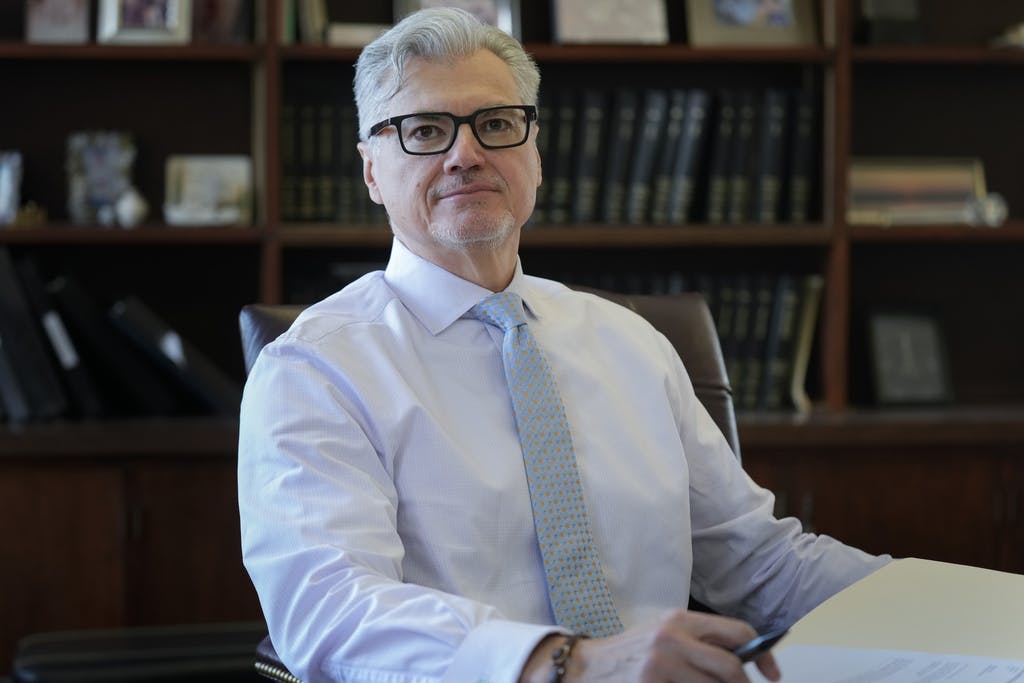
The New York Supreme Court justice, Juan Merchan, who presides over President Trump’s ongoing hush-money trial, was cautioned by a New York state ethics panel over three small donations made to Democrat-aligned groups in 2020, including $10 to “Stop Republicans.” Mr. Trump’s defense team could use this warning in their appeal of a gag order and an appeal of the entire case, should the former president be found guilty by the jury.
A recent report by Reuters exposed that Judge Merchan was issued a caution, meaning a warning, when a state ethics panel reviewed a complaint against him last year.
“Justice Merchan said the complaint, from more than a year ago, was dismissed in July with a caution,” the spokesperson for the state Office of Court Administration, Al Baker, said in a statement to the press.
This type of warning does not carry immediate consequences, such as penalties, but can become significant in further reviews by the state’s Commission on Judicial Conduct, or during appeals of rulings by the judge in question.
Judge Merchan did not release the letter, which outlines the caution, to the press, and the commission’s rules don’t permit its publication, the New York Times reported on Friday.
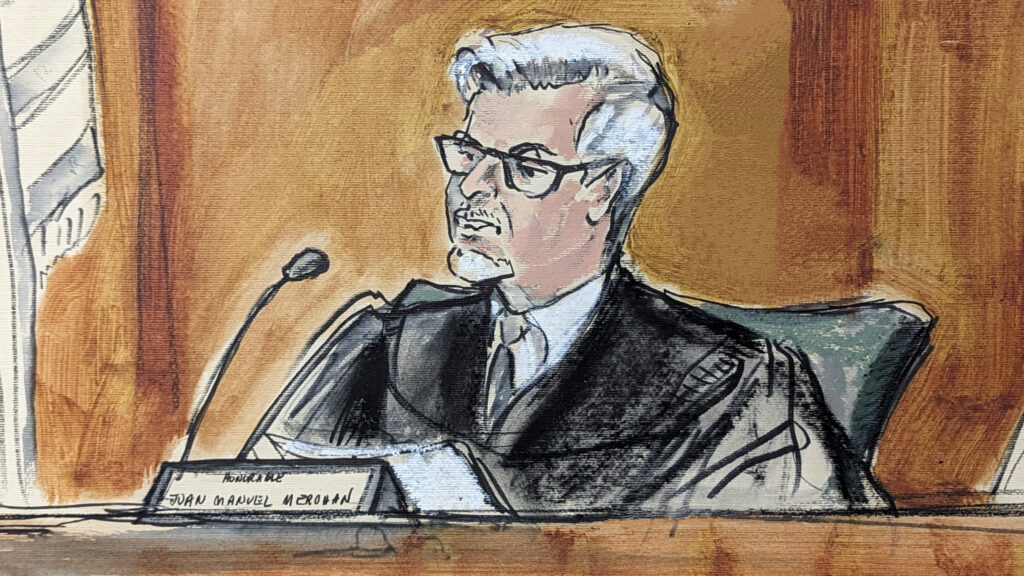
“The Commission on Judicial Conduct is governed by a confidentiality statute and cannot comment on nonpublic dispositions,” the commission’s administrator, Robert Tembeckjian, told the New York Times.
It is also not publicly known who filed the complaint against the judge. The unknown complainant informed the state ethics panel that Judge Merchan donated $35 to the Democratic group ActBlue, which included $15 earmarked for Biden for President and $10 each to Progressive Turnout Project and Stop Republicans in 2020.
On March 1, the Commission on Judicial Conduct, an independent state agency charged with investigating allegations of judicial misconduct made against New York state, county, town and village judges, published its annual report, which found that “several dozen judges throughout the state” made small but nonetheless prohibited donations to political campaigns in the last few years. Most of these contributions were for modest amounts, typically under $100, and sometimes as low as $5 or $10.
The report also reiterated, “Public confidence in the independence, integrity and impartiality of the judiciary requires keeping politics out of the courthouse and from influencing judicial decisions.” Political donations of any kind are prohibited under New York state judicial ethics rules.

There is a small exception, a so-called “Window Period,” when judges are running for office. “In this Window Period,” as written in the report, “judicial candidates – whether incumbent judges or non-incumbent challengers – may engage in certain campaign activity, such as purchasing two tickets to political events sponsored by political parties or other partisan organizations, which they may attend in order to promote their own candidacies.”
Complaints against judges who acted within this “Window Period” were dismissed. But to the judges who could not provide a “valid explanation or excuse,” the Commission issued a confidential letter of dismissal, or a caution, to the judge. “A judge who repeats the violation risks public discipline in the future,” the report states.
Mr. Trump has repeatedly criticized Judge Merchan, especially for the political work of his adult daughter, Loren Merchan.
“This Judge should be recused, and the case should be thrown out,” Mr. Trump wrote on his Truth Social account in early April. “There has virtually never been a more conflicted judge than this one.”
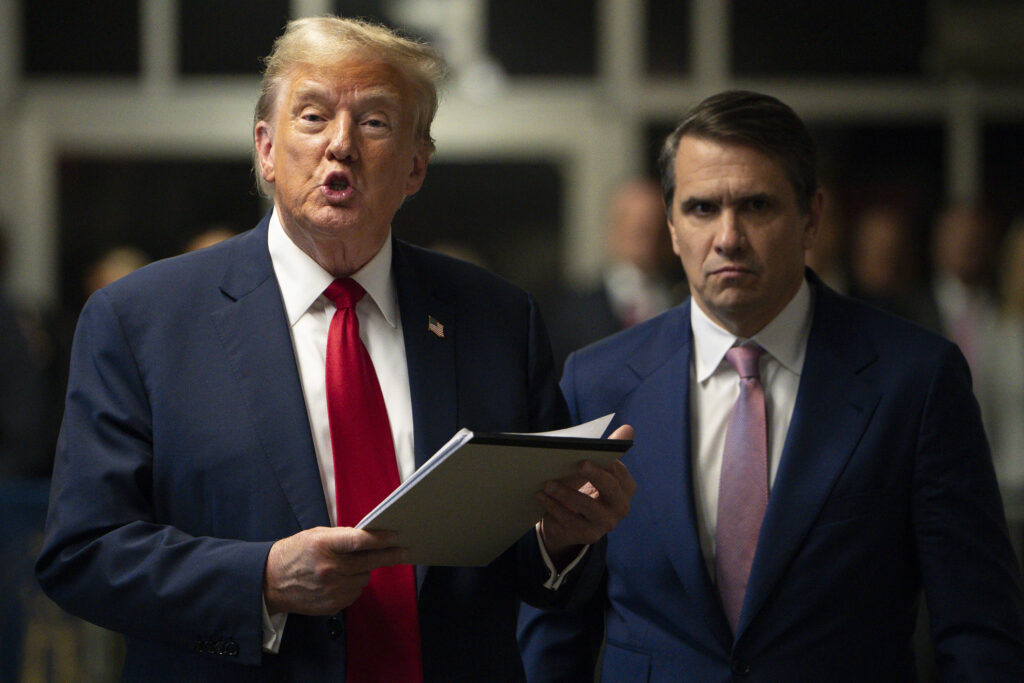
Loren Merchan works as a Democratic political consultant and her clients have included two of Mr. Trump’s most committed enemies, Vice President Harris and Congressman Adam Schiff of California.
After Mr. Trump publicly denounced Ms. Merchan for her work, the judge extended the gag order, which he had imposed on Mr. Trump, to include the members of his family. The gag order prohibits the former president from making public comments about witnesses, jurors, court staff, and counsel involved in the ongoing hush-money trial.
The judge also included in the gag order the family members of the Manhattan district attorney, Alvin Bragg, who brought the case against Mr. Trump. In the first criminal trial of a former president, Mr. Bragg accuses Mr. Trump of falsifying business records in an attempt to interfere with the 2016 election.
Mr. Bragg alleges that Mr. Trump directed his former personal attorney, Michael Cohen, to make a $130,000 hush-money payment to the adult film star Stormy Daniels on the eve of the presidential election.
The payment was allegedly issued to stop Ms. Daniels, whose real name is Stephanie Clifford, from publicizing her claim that she had a sexual encounter with Mr. Trump at a celebrity golf tournament at Lake Tahoe in 2006.
Mr. Trump, who denies he ever had sex with Ms. Clifford, later, as president, repaid Cohen the $130,000, but according to Mr.Bragg, he illegally disguised the payment as a legal expense.
In mid-April, a week before the trial began, Mr. Trump’s defense attorneys filed an Article 78 proceeding with New York’s Appellate Division, First Department. Article 78 is a legal maneuver that allows petitioners to challenge an action, or inaction, by agencies of New York state and local governments, such as judges.
In one of several motions attempting to stop or delay the trial, Mr. Trump asked the mid-level appeals court to force the judge to recuse himself. The appeal was denied.
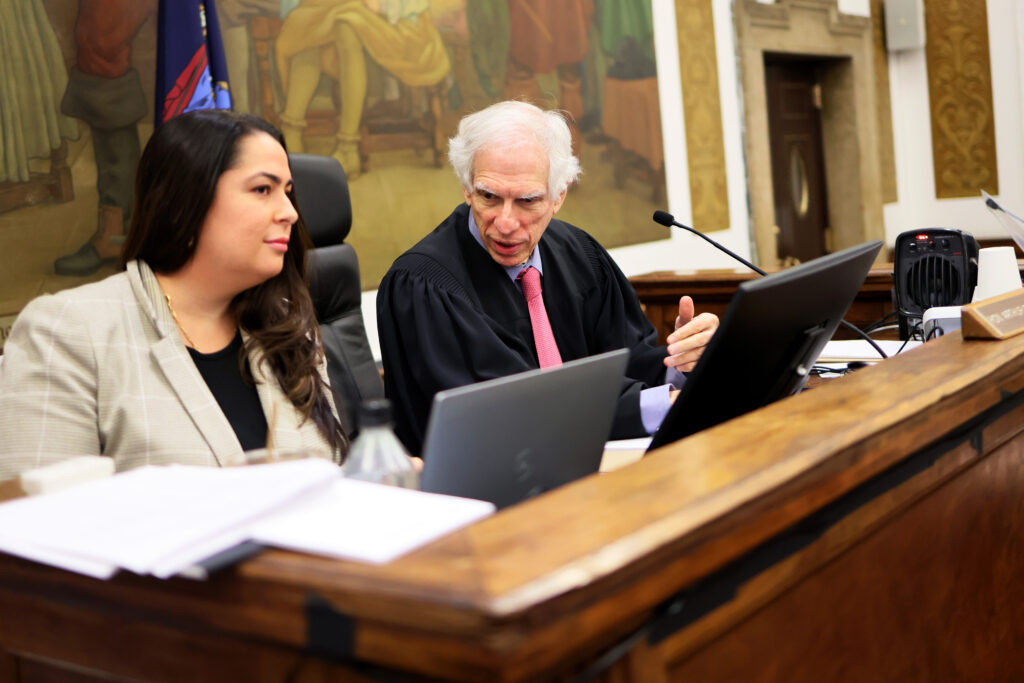
Mr. Trump had also filed the same recusal request with the judge directly, once last summer, and again this spring. In both cases, the judge denied the motions, arguing that his daughter’s political actions did not affect his ability to rule impartially. In his arguments, the judge cited the dismissal of the ethics commission, but did not mention that he had been given a warning.
The Commission wrote in its report that, “Like so much of the misconduct the Commission encounters, making a prohibited political contribution is a self-inflicted mistake.”
A complaint was also filed with the commission against the Manhattan judge, Arthur Engoron, who presided over the civil fraud case, brought against Mr. Trump by the New York attorney general, Letitia James, the Guardian reported on Saturday. The Sun could not verify that report over the weekend and did not find Judge Engoron’s name in the commission’s annual report.
During the civil fraud trial, Mr. Trump repeatedly criticized the judge’s principal law clerk, Allison Greenfield, for posing in a photograph with the Senate majority leader, Chuck Schumer, whom he called, without verification, her boyfriend, and for also making donations to Democratic organizations.
Judge Engoron said these donations took place in the “Window Period” for Ms. Greenfield’s election campaign, as she is seeking, running as a Democrat, to become a judge herself.
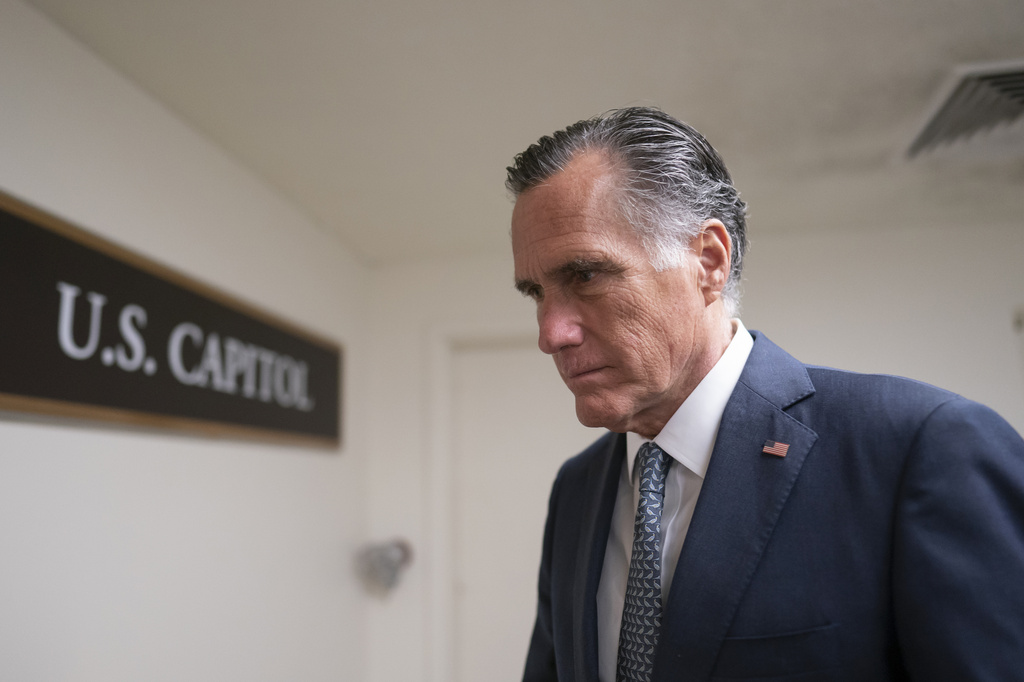
Judge Merchan, however, did receive a complaint, and did make the modest donations. And Mr. Trump’s defense attorneys could bring up this warning when they appeal the gag order, which they have said they will do, to the highest court in the state, the New York Court of Appeals, or when they appeal the entire case, should the former president be found guilty at trial.
Mr. Trump has been using his appearances at the courthouse to inveigh against the prosecutors and judges, all Democrats or appointed by Democrats, who’ve brought and overseen four criminal cases against him in three states and the District of Columbia, and he may be turning these prosecutions to his political advantage.
The outgoing Republican senator from Utah, Mitt Romney, told MSNBC’s Stephanie Ruhle last week that President Biden “made an enormous error” by not pardoning Mr. Trump in the federal cases brought against him, and by not pressuring New York prosecutors to drop the hush money charges.
Referring to President Johnson, Mr. Romney told Ms. Ruhle, “I have been around for a while. If LBJ had been president, and he didn’t want something like this to happen, he’d have been all over that prosecutor saying, ‘You better not bring that forward or I’m gonna drive you out of office.’”
In the interview, Mr. Romney also criticized the North Dakota governor, Doug Burgum, whom Mr. Trump is considering to be his vice presidential nominee, for visiting the Manhattan criminal courthouse last week and denouncing New York’s Democrat-controlled legal establishment.
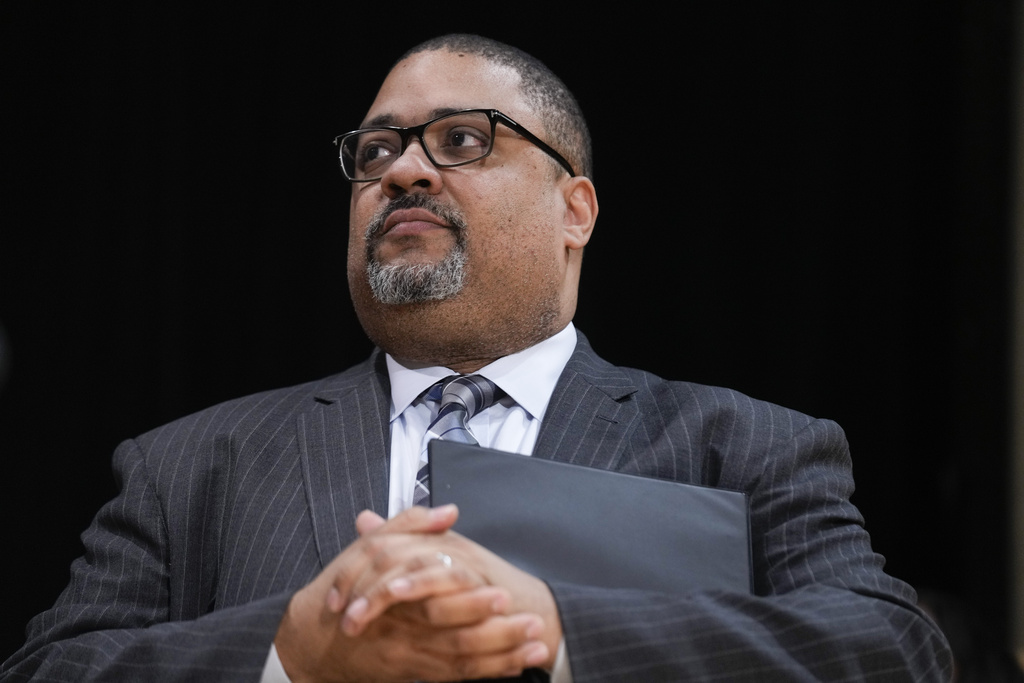
“I think it’s a terrible fault for our country to see people attacking our legal system — that’s an enormous mistake,” Mr. Romney said, adding, “I think it’s also demeaning for people to quite apparently try and run for vice president by donning a red tie and standing outside the courthouse. It’s just — I’d have felt awkward.”
Regarding the federal charges Mr. Trump faces, Mr. Romney felt that President Biden should have pardoned his rival.
“You may disagree with this, but had I been President Biden, when the Justice Department brought on indictments, I would have immediately pardoned him. I’d have pardoned President Trump. Why? Well, because it makes me, President Biden, the big guy and the person I pardoned a little guy.”
Meanwhile, the hush-money trial, which began with jury selection on April 15, will hear further testimony from Cohen on Monday. He is expected to be the last witness for the prosecution. The defense may call an expert witness. Judge Merchan signaled on Friday that the jury could hear closing arguments this week.

